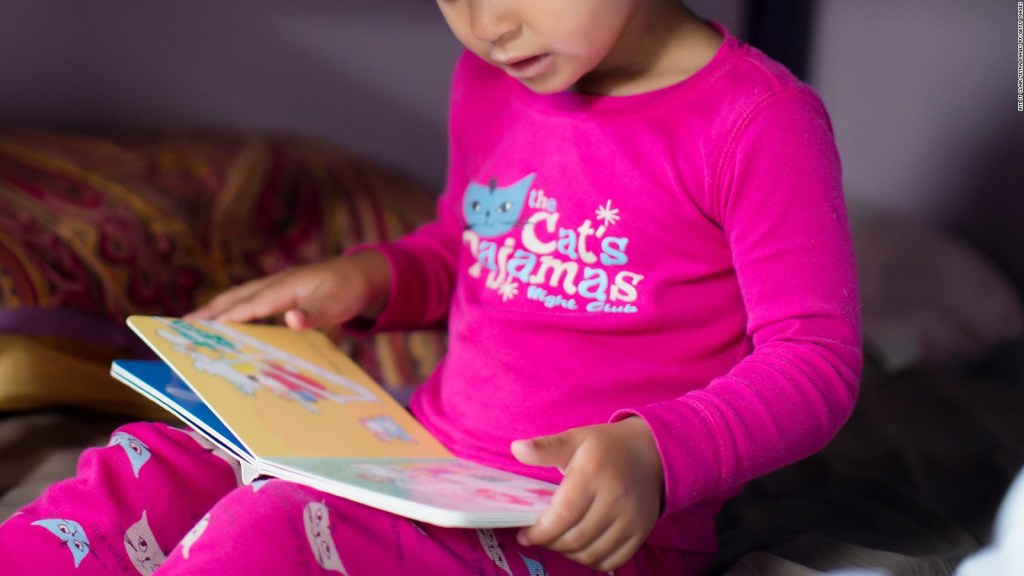Why do some children suck their thumb?
1:50
(CNN) --
A backpack, a lunch box, a box of crayons and at least 10 hours of sleep each night are the things kids need to start kindergarten off on the right foot, according to a new study.
Researchers monitored kindergarten students' sleep duration over four-week periods and asked their teachers to assess their transition to formal school, according to the study published this week in the academic journal Pediatrics.
The teachers were not aware of the number of hours the children slept each night.
"The more consistently children slept more than 10 hours a night, the better their peer relationships, relationships with their teachers, overall academic performance, and visual recognition of words and letters," said the study's lead author, Douglas Teti, distinguished professor and head of the Department of Human Development and Family Studies at Pennsylvania State University, via email.
The American Academy of Sleep Medicine suggests that kindergarten-age children get between 10 and 13 hours of sleep, but that's throughout the day, including naps.
But the study results challenge the Academy's guidance in that they showed the strongest predictor of successful school adjustment was regularly getting at least 10 hours of sleep over the course of the night, Teti said.
The Forest Kindergarten: an educational program that takes place in a forest
"This suggests that 'compensating' for inadequate nighttime sleep by allowing the child to nap during the day will not help children transition to kindergarten. Those 10-plus hours of sleep are best concentrated during the sleep period." night, and try to make it as constant as possible between nights," Teti said.
advertising
The study's methods are robust and support what is being seen in clinical settings as well as in broader pediatric research, said psychologist Ariel A. Williamson, an expert in pediatric sleep in the Department of Child and Adolescent Psychiatry and Behavioral Sciences at the Children's Hospital of Philadelphia and Assistant Professor of Psychiatry and Pediatrics at the Perelman School of Medicine at the University of Pennsylvania.
Williamson was not involved in the study.
New guidelines for safe sleep for babies insist on not sleeping in bed with them, nor using decorations or tilted beds
If you have a little one heading into kindergarten this fall, now may be the time to start good sleep habits.
According to the study, sleep habits in the pre-kindergarten period make the biggest difference.
"The intervention should start before kindergarten starts in September," Teti said.
"Parents should do what they can to help their children sleep most, if not all, of the time during their children's nightly sleep period."
A routine that helps kids wind down each night can help them consistently get enough sleep, experts say.
Start good sleep habits
The study results don't mean that preschool-age children or younger should start giving up napping, which is important during infancy, Teti said.
"For many young children, napping in the afternoon is typical of development, however, as the transition to kindergarten approaches, families could work to reduce daytime naps to consolidate sleep at night" Williamson said.
If your child is transitioning to school, Teti suggests going to bed at or before 9 p.m. and making an effort to ensure that most of your child's sleep occurs at night.
Increases use of melatonin for sleep, study finds, despite possible health harm
This can be difficult for some families to maintain, especially when adults have unusual work hours, he acknowledged.
In those cases, Teti suggested leaning on other caregivers or family members.
In addition to sticking to an earlier bedtime, it can be helpful to avoid, not eliminate, screen use, Teti said.
However, screens like TVs, video games and tablets should be completely removed at least 30 minutes before bedtime, she added.
It's also important to get involved at bedtime, making a routine that is consistent and prepares the child for bed, Teti said.
That might mean a bath, reading books, talking quietly to her and creating a calm environment, she suggested.
That regular schedule has been shown to increase children's sleep time over the course of the night, Williamson said.
"Establishing a consistent bedtime routine ... may help encourage a regular sleep schedule and promote optimal nighttime sleep duration, especially in early childhood," he said.
Well-being childrenSleep quality

